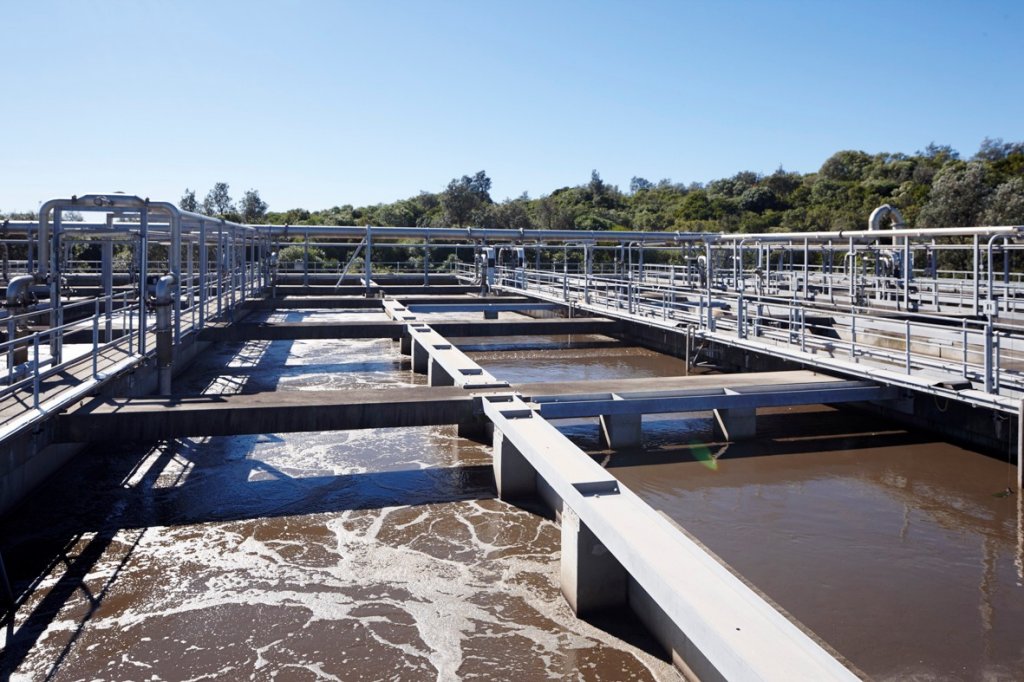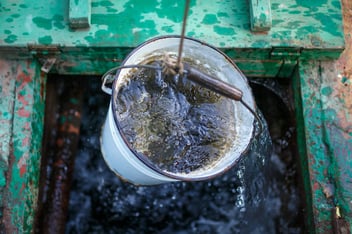Water literacy: a journey for life

In order to achieve sustainable and secure water provision well into the future, water educators around Australia are working to foster stronger water literacy via engaging programs and initiatives that bring the community along on the water journey.
With National Water Week all about inspiring individuals, schools and organisations to promote the importance of water, we caught up with Melbourne Water and Central Highlands Water about what they’re doing to foster water literacy within the communities they serve.
When it comes to educating the community about the importance of water, school programs have been a strong suit among water utilities for decades, and for good reason, Central Highlands Water Communications and Engagement Lead Shannon Haintz said.
“Students in our community are our future customers. They will influence the decisions we make in the future. They will be our bill payers and our employees,” she said.
“And the more people know about the water industry and what we do, the more they can make informed decisions.
“But water is also interesting. We all use it every day without giving it much thought. And when you know the effort and the work that goes into providing clean, safe drinking water, it becomes pretty amazing. We aim to inspire future water leaders, too.”
While school programs will always play a central role in Melbourne Water’s education initiatives, Water Education Officer Kim O’Hoy said the utility has recently sharpened its focus towards a broader approach to water literacy.
“At Melbourne Water we manage all parts of the water cycle for Greater Melbourne. From providing clean drinking water, treating sewage so we can recover and re-use our valued resources, working within our community to reduce flood risk, and keeping all 25,000km of Melbourne’s rivers, creeks and catchments healthy,” she said.
“We have had an education program for many, many years. But more recently we have started to focus on what we can do better.
“Over the last 12 months, we have brought our education programs together with the broader water literacy program at Melbourne Water. It means we are able to create not just for schools, but we now have a more connected lifelong learning journey in mind.
“We want to keep connecting with people at different times in their lives to nurture that lifelong water literacy journey. If we can make an impact every time we meet a member of our community, we can help foster a higher level of water literacy at all stages of life.”
Expanding reach
Melbourne Water offers guided tours through two major education facilities: the Edithvale-Seaford Wetland and the Western Treatment Plant in Werribee. O’Hoy said these tours are now also offered virtually to ensure anyone, anywhere can access learning.
“It’s great to have virtual tour offerings as it means we can talk about water with everyone – it’s great for inclusivity. Some people can’t make it to our sites, but we still want them to learn about water,” she said.
But the education offerings at the Western Treatment Plant are due for a shake up, O’Hoy said.
“We need to ensure we keep up with the latest customer needs and pedagogy approaches and have big changes in mind relating to how we present our water program. It’s very exciting for us. We are looking at how we have engaged and delivered in the past, using our insights and data to really shape our offering and learning experience to suit our audience,” she said.
“Presentations can be pretty one sided, so our new program will take more of a collaborative and problem-solving approach to learning, using interactivity and play to deepen engagement with the audience, whether that’s students or community groups.
O’Hoy said Melbourne Water is also producing a new series of water cycle videos, which focuses on the value of water within the Australian context.
“There is a gap with Australian based content on the water cycle that’s fit for the Australian curriculum. Working on this with a key external national partner will help us gain wider reach. It might be a pipe dream to be able to reach everyone, but we can definitely focus on expanding our reach,” she said.
Melbourne Water has also recently finished a school holiday program at Scienceworks called Super Sewage, including a unique and engaging 'choose your own adventure' storytelling experience, as well as a fun 'pipe promise' activity.
“We have a sewer main project located close to the Scienceworks precinct. Together, we built this activity on the water cycle. It was really about valuing water and understanding what we need to do to make our city healthy and safe,” O’Hoy said.
“It was tailored not only for kids, but there was plenty of laughter from the adults as well. It was designed to be fun. It’s about why it’s important to treat waste and how we can make something from it, as well. We now talk about sewage as a resource.
“The more we talk about these things that we do, the more people understand how important this work is for the environment, but for our future, too.”
Thirst for knowledge
In regional Victoria, Central Highlands Water has a strong focus on supporting learning through free incursions and excursions, as well as offering an array of engaging online materials and resources to support teachers and water educators, Haintz said.
“The incursions focus on water conservation, the water cycle and catchment to tap, and what happens after that. We talk about making sure that our water lasts,” she said.
“Kids in primary school today weren’t yet born to remember the Millennium Drought, so we talk about that and the ways we can conserve water.
“Over the years we have also developed lesson plans around choosing tap, and more recently, a suit of materials about water conservation. Choose tap is all about choosing tap water, rather than bottled water, for the environment, hip pocket and health.”
Haintz said Central Highlands Water has installed drinking fountains in schools and around the community, including educational resources and posters that talk about why it’s important.
“We also have an education newsletter that goes out to teachers and water educators once a term,” she said.
“And excursions are available again now, too – tours of our reservoirs for primary aged students, and water and wastewater treatment plant tours for secondary and tertiary students.
“We are committed to educating customers about what we do. And we find that people really want to know, as well. There is a real thirst for knowledge, from both kids and adults, around what goes on behind the scenes.”
Haintz said Central Highlands Water has a busy National Water Week planned, with the theme for this year – united by water – taking a focus for the utility’s messaging.
“We will be out and about awarding prizes at assemblies for the poster competition, and also delivering water sessions to kinders and schools,” she said.
“But we have a day planned at Kirks Reservoir Park in conjunction with the Corangamite Catchment Management Authority and Wadawurrung Traditional Owners Aboriginal Corporation. We have a school coming with about 50 students.
“We’ll be talking to them about how we are all united by water.”
Leaning into improvements
O’Hoy said Melbourne Water is committed to improving and developing its education and water literacy offerings to ensure it continues to meet the needs of the community as best as possible – and that sometimes this involves trying new approaches.
“It’s important we constantly use our insights to refine our approach and question whether we’re reaching the right audiences and whether or not we’re doing it well. And the more we can try things in different ways, the more likely we will be able to reach more diverse audiences,” she said.
“We are now reviewing our programs, looking at the gaps and thinking about how we change our approach to learning. But we don’t want to lose what we already have that works well.
“We want to equip people with all of this knowledge about the water cycle in Melbourne and empower them to make smart water choices. The more people learn about the important work that we do, the more likely they are to become advocates for us.”
And while there are big challenges on the horizon when it comes to achieving sustainable and secure water provision, Haintz said it’s important to trust that young people, when given the information and insight they need, can lead the charge in future.
“I’ve worked in environmental education for about 15 years. And I feel like the world is in good hands,” she said.
“Students inspire me to keep learning and changing, and keep enquiring about our world. Topics like climate change can be quite daunting, but kids take it in their stride and they have a positive outlook of their future.”


